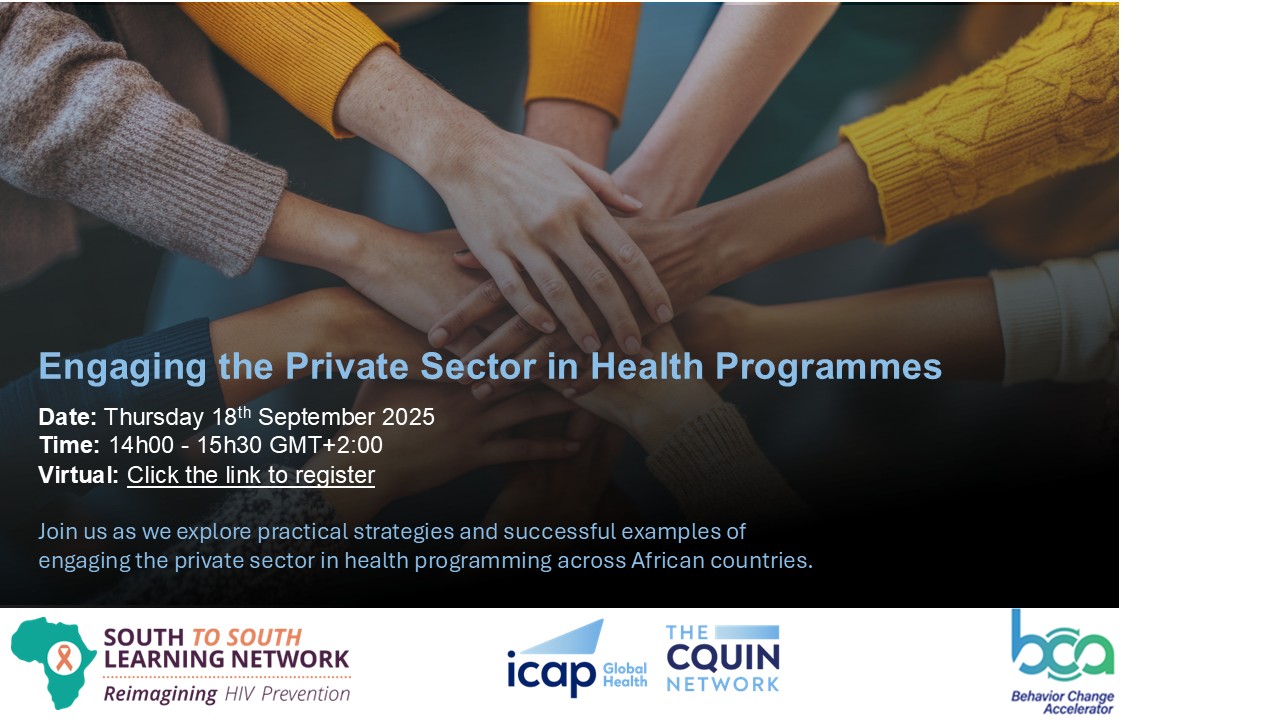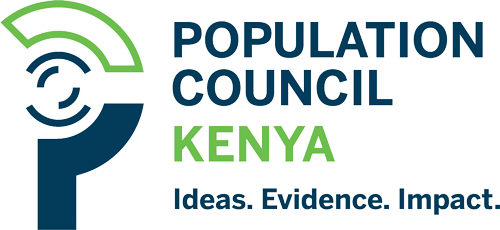Background
Achieving global health targets, particularly in HIV prevention, requires a comprehensive approach that extends beyond public sector initiatives. With shifts in global health financing placing increased pressure on national budgets, countries are turning to domestic resources to bridge funding gaps. The private sector—ranging from large corporations to small businesses—remains a largely untapped partner in health programming, yet offers significant potential to contribute resources, innovation, efficiency, and expanded reach.
On 18 September 2025, SSLN convened a webinar to explore practical strategies and share successful examples of private sector engagement in health programming across African countries. The event highlighted lessons learned, showcased diverse models of collaboration, and underscored the critical role of the private sector in advancing shared health goals.
Objectives
- Provide a global perspective on private sector engagement in health, with emphasis on emerging trends and best practices.
- Share examples of enabling policy and governance frameworks that facilitate private sector collaboration.
- Highlight country-level experiences of private sector actors contributing to health priorities, including HIV prevention, treatment, and testing.
- Capture community perspectives on effective and inclusive private sector engagement.
- Provide a platform for dialogue on challenges, opportunities, and approaches to sustaining collaboration.
Introduction and Opening
The session was chaired by Kerry Mangold (SSLN Programme Director), who welcomed participants and outlined the objectives of the webinar. In the opening remarks, Dr. Temitope Ilori, Director General of the National Council on AIDS Nigeria (NACA) underscored the importance of private sector partnerships in strengthening Africa’s health systems, accelerating progress in HIV prevention and treatment, and ensuring that national responses remain sustainable and innovative.
Global Perspective
Esther from the Behavior Change Acceleratorpresented an overview of global trends in private sector engagement in health. She highlighted diverse models of partnership, including shared value collaborations, innovative financing mechanisms, and digital health innovations, stressing that well-designed engagement must be guided by equity, accountability, and alignment with national priorities.
Policy and Enabling Environment
David C (TGF) provided insights on how countries can create enabling environments for private sector participation. He drew attention to policy frameworks, governance structures, and incentive mechanisms that foster trust and accountability between governments and private actors. The session highlighted examples where effective policies facilitated sustainable partnerships with measurable health outcomes.
Country Examples: Private Sector in Action
A series of presentations showcased the breadth of private sector contributions to health in Sub-Saharan Africa:
Coca-Cola (Phil Roberts): Leveraging supply chain and marketing expertise to strengthen health product distribution and demand generation.
Grindr (Steph Niaupari): Reaching MSM communities through digital engagement on dating platforms to expand HIV testing and prevention services.
Orange (Rokhaya Solange Mbengue, Ralph Ankri, Zhamilya Karimova): Driving digital health solutions to support service delivery and health information systems.
Maisha Meds (Sisi Pan): Innovating in pharmacy networks to improve access to quality medicines and data-driven programming.
Speakers reflected on enabling factors for success, challenges encountered, and lessons to guide future partnerships.
Community Insights and Call to Action
Sibongile Tshabalala (TAC National Chairperson, South Africa) delivered a strong call to action, urging that community perspectives remain central in private sector engagement. She stressed that true partnership requires inclusivity, transparency, and mechanisms to ensure that private sector contributions directly address community needs and priorities.
Discussion and Q&A
A moderated discussion led by Dr. Onyekachi Ukaejiofo (CQUIN) provided space for participants to reflect on financing models, regulatory frameworks, and pathways to strengthen mutual accountability between governments, private sector actors, and communities. Key issues raised included the importance of long-term sustainability, safeguarding equity, and aligning private sector engagement with national health strategies.
Closing Remarks
In her closing statement, Kerry Mangold (SSLN) thanked all speakers and participants for their contributions. She emphasised the need to sustain dialogue, scale up innovation, and ensure that partnerships deliver equitable health outcomes. The webinar reaffirmed SSLN’s commitment to fostering peer learning and collective action to advance the role of the private sector in health across Africa.
Download Event Material

















